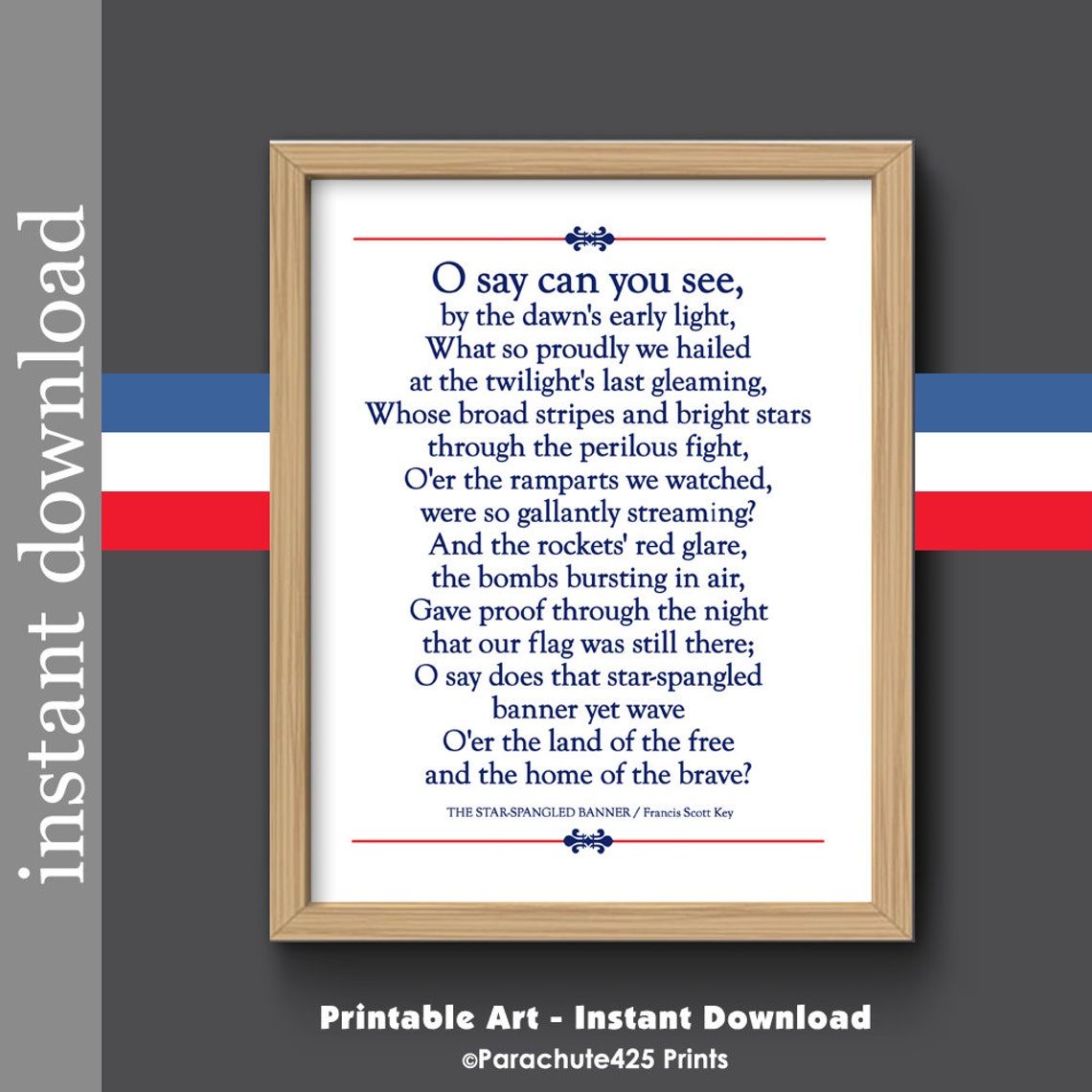
Photo: Edward Percy Moran/Library of Congressįrancis Scott Key wrote the poem that became the song’s lyrics on Sept.

It took 117 years from the time “The Star-Spangled Banner” was written in 1814 until it was legally enshrined as the American national anthem in 1931.Ī painting titled “By Dawn’s Early Light” depicts Francis Scott Key standing on a boat with his arm outstretched toward the United States flag flying over Fort McHenry in Baltimore, Maryland. Part of that means facing the reality that everything about “The Star-Spangled Banner” - its lyrics, its author, and the path it took to becoming the national anthem - is inextricably bound up with America’s gruesome history of racism. has barely begun dragging the unflattering aspects of its past out into the light. It’s the clearest demonstration possible that even in 2016, the U.S. The very fact this controversy was surprising may be the most significant thing about it. Much of the debate generated by Kaepernick has been on subjects directly connected to his actions: police brutality, free speech, and the rights and obligations of professional athletes.īut it’s also sparked nationwide discussion of something more tangential that no one saw coming - the meaning and history of “The Star-Spangled Banner” itself, including whether it should be rewritten or replaced entirely. The 2001 re-release of the single was Houston's last Top Ten hit on the US Hot 100 during her lifetime.San Francisco 49ers quarterback Colin Kaepernick kneels during the national anthem before the team’s preseason game against the San Diego Chargers on Sept. This made Houston the first musical act to take the national anthem Top 10 in the US, and have it certified platinum. This time the single peaked at #6 on the US Hot 100, and was certified platinum by the RIAA. She once again donated her share of the royalties, as did Arista Records, towards the firefighters and victims of the terrorist attacks. After the Septemattacks, Arista Records re-released Houston's "The Star Spangled Banner". Houston donated her portion of the proceeds. Traditionally performed at sports games in the US, "The Star Spangled Banner" was performed by Houston at the original Tampa Stadium for Super Bowl XXV in 1991. The recording was included in the 2014 CD/DVD release, Whitney Houston Live: Her Greatest Performances and the US edition of the 2000 release, Whitney: The Greatest Hits. The recording was produced by music coordinator Rickey Minor, along with Houston herself.

The musical arrangement for Whitney Houston's rendition was by conductor John Clayton. Written by Francis Scott Key, "The Star-Spangled Banner" is the national anthem of the United States.

"The Star Spangled Banner" is a charity single recorded by American singer Whitney Houston to raise funds for soldiers and families of those involved in the Persian Gulf War.


 0 kommentar(er)
0 kommentar(er)
